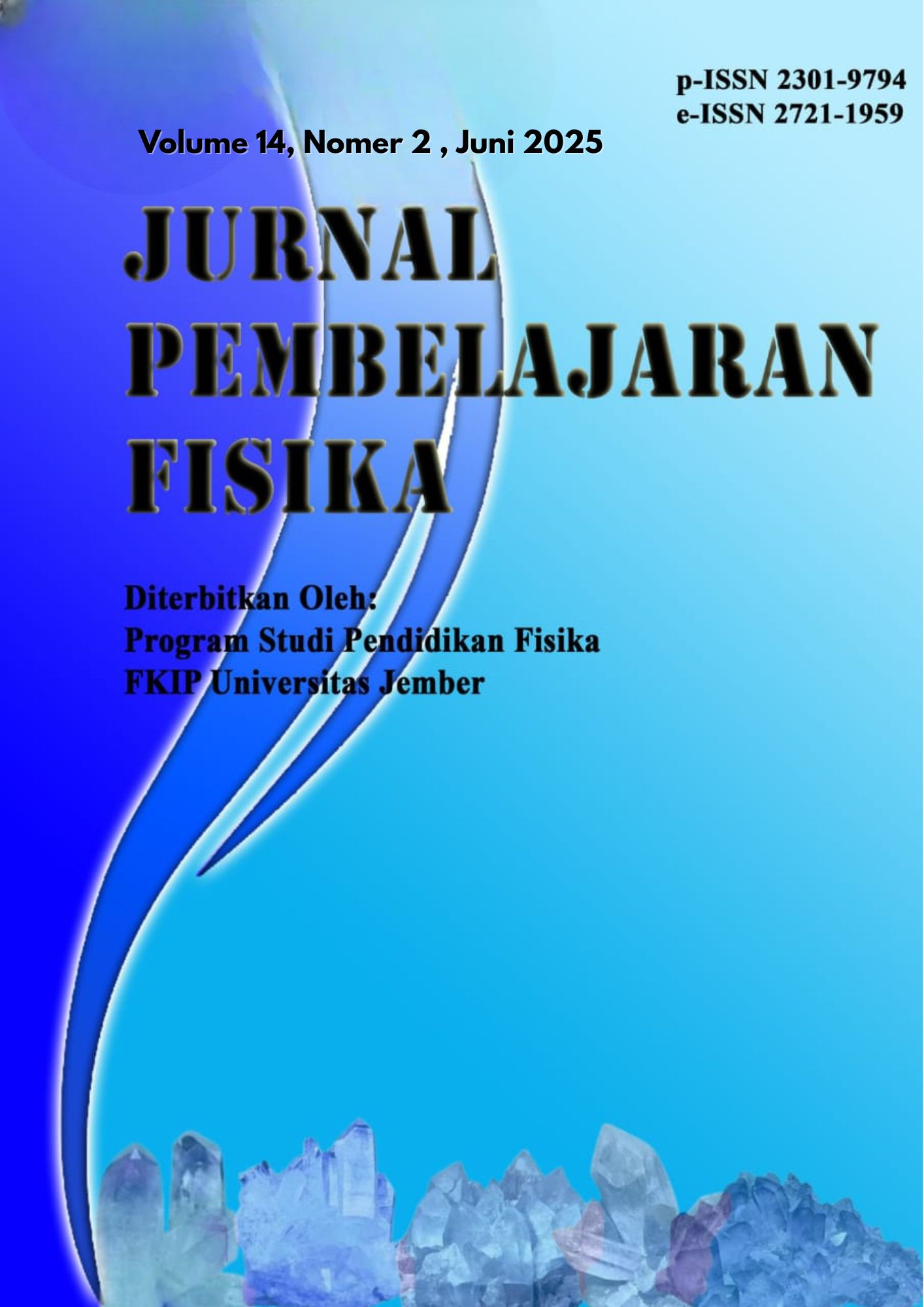Assessing Computational Thinking Skills: Physics Computational Test based on Scratch Program for High School Students
DOI:
https://doi.org/10.19184/jpf.v14i2.53697Abstract
Computational thinking ability has become one of the primary focuses in science education, including physics, as a response to the challenges of the Fourth Industrial Revolution. Integrating computational physics concepts into learning requires relevant and comprehensive assessment tools to measure students' abilities. A programming-based test instrument using Scratch was designed to evaluate computational thinking skills through programming activities linked to physics principles. This study aims to develop a Scratch-based test instrument to assess students’ computational thinking abilities on the topic of sound waves within secondary-level physics education. The research employs a development method based on the stages outlined by Borg & Gall, which include: (1) analysis of potential and problems; (2) data collection; (3) product design; (4) design validation and revision; (5) product trials; and (6) data analysis and reporting of results. The trial subjects involved 99 students. The developed test instrument consists of 21 items. Based on the content validity test, 87.55% was obtained, indicating the instrument’s feasibility. The instrument's reliability was measured using Cronbach's Alpha coefficient, yielding a value of 0.781, which falls into the high category. Overall, this Scratch-based computational physics test instrument is declared suitable for evaluating students' computational thinking abilities with physics content.
Downloads
Downloads
Published
Issue
Section
License
Copyright (c) 2025 Ridho Adi Negoro, Wiyanto Wiyanto

This work is licensed under a Creative Commons Attribution-ShareAlike 4.0 International License.


-14(3)_minimalis_pages-to-jpg-0001_(2).jpg)
_(3)2.jpg)









